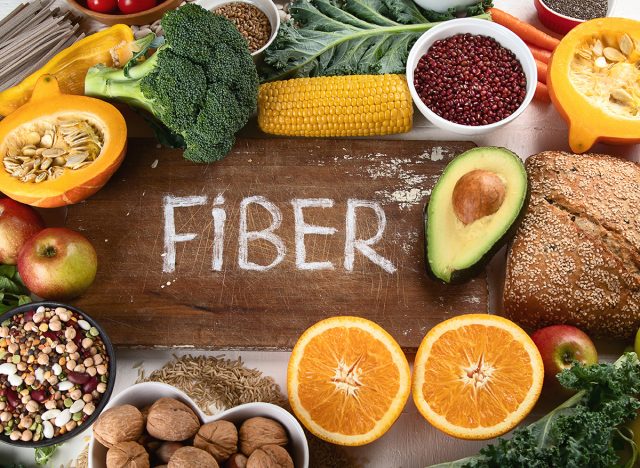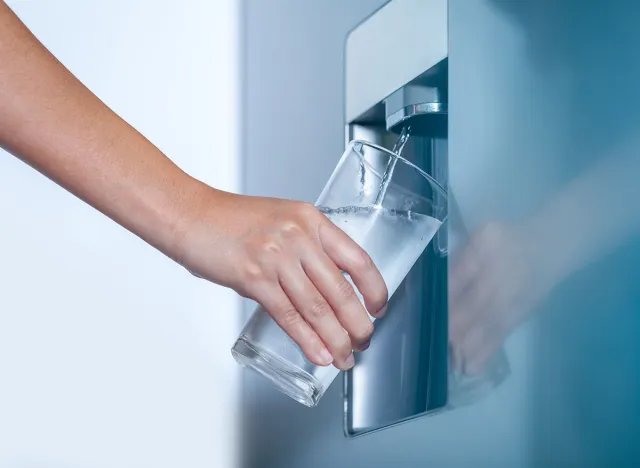5 Foods That Reduce Abdominal Fat

Belly fat—also known as abdominal or visceral fat—is a particularly dangerous type of fat stored deep in the abdominal cavity underneath the muscle, surrounding vital organs such as the pancreas, liver, and intestines. "For women, a waist measurement of more than 35 inches (89 centimeters) signals an unhealthy amount of belly fat and a greater risk of health problems," according to the Mayo Clinic. "In general, though, the greater the waist measurement, the higher the health risks." While belly fat cannot be spot-targeted, certain things can help with fat-burning, and diet plays a crucial part in that. Here are five foods that can help encourage belly fat loss.
Get Enough Fiber

Research shows getting the right amount of fiber can help with weight loss (ideally from whole foods). "In addition to weight control, higher fiber diets can also help to prevent type 2 diabetes and cardiovascular disease," Dr. Frank Hu, professor of medicine at Harvard Medical School and professor of nutrition and epidemiology at the Harvard School of Public Health, tells Harvard Health. Fruits, vegetables, legumes, nuts and seeds, and whole grains are all high in fiber.
Good Quality Protein

Good quality protein such as eggs, dairy, meat, seafood, and tofu can help preserve lean body mass and encourage weight loss. "Increasing the amount of protein you eat can help reduce the buildup of harmful fats in your body, especially around your belly (abdomen)," say the experts at the Cleveland Clinic. "Protein is used to build muscle, so it can also help prevent muscle loss as you shed pounds."
RELATED: 5 People Who Lost 30 Pounds Share How
Probiotics, Please

Studies show that probiotic-packed yogurt can help fat loss. "When we put people on diets that include three servings of yogurt a day, we're able to nearly double the amount of fat that's lost, compared to people on a low-dairy diet," says University of Tennessee nutrition professor Michael Zemel, PhD. "We have one more tool to combat the obesity epidemic. People shoot themselves in the foot by jettisoning dairy when they go on diets. What they need to do is maintain or increase the dairy intake for a host of health-related reasons, and here's one more: it's going to help you burn fat."
Try a Low-Carb Diet

Johns Hopkins researchers found that those who tried a low-carb diet lost an average of 10 pounds more than those on a low-fat diet (28.9 pounds for the low-carbers and 18.7 pounds for the low-fat people). Both groups took in the same amount of calories. "An extra benefit of the low-carb diet is that it produced a higher quality of weight loss," according to Kerry Stewart, Ed.D. for Johns Hopkins Health. "With weight loss, fat is reduced, but there is also often a loss of lean tissue (muscle), which is not desirable. On both diets, there was a loss of about 2 to 3 pounds of good lean tissue along with the fat, which means that the fat loss percentage was much higher on the low-carb diet."
RELATED: 5 Effective Ways to Walk to Burn Body Fat
Don't Forget To Hydrate

Studies show that drinking water can help encourage fat-burning. "Science suggests that water can help with weight loss in a variety of ways," according to Johns Hopkins University. "It may suppress your appetite, boost your metabolism, and make exercise easier and more efficient, all of which could contribute to results on the scale." And if you enjoyed this article, take advantage of these 15 Quick Ways to Lose Body Fat Percentage in a Week.




